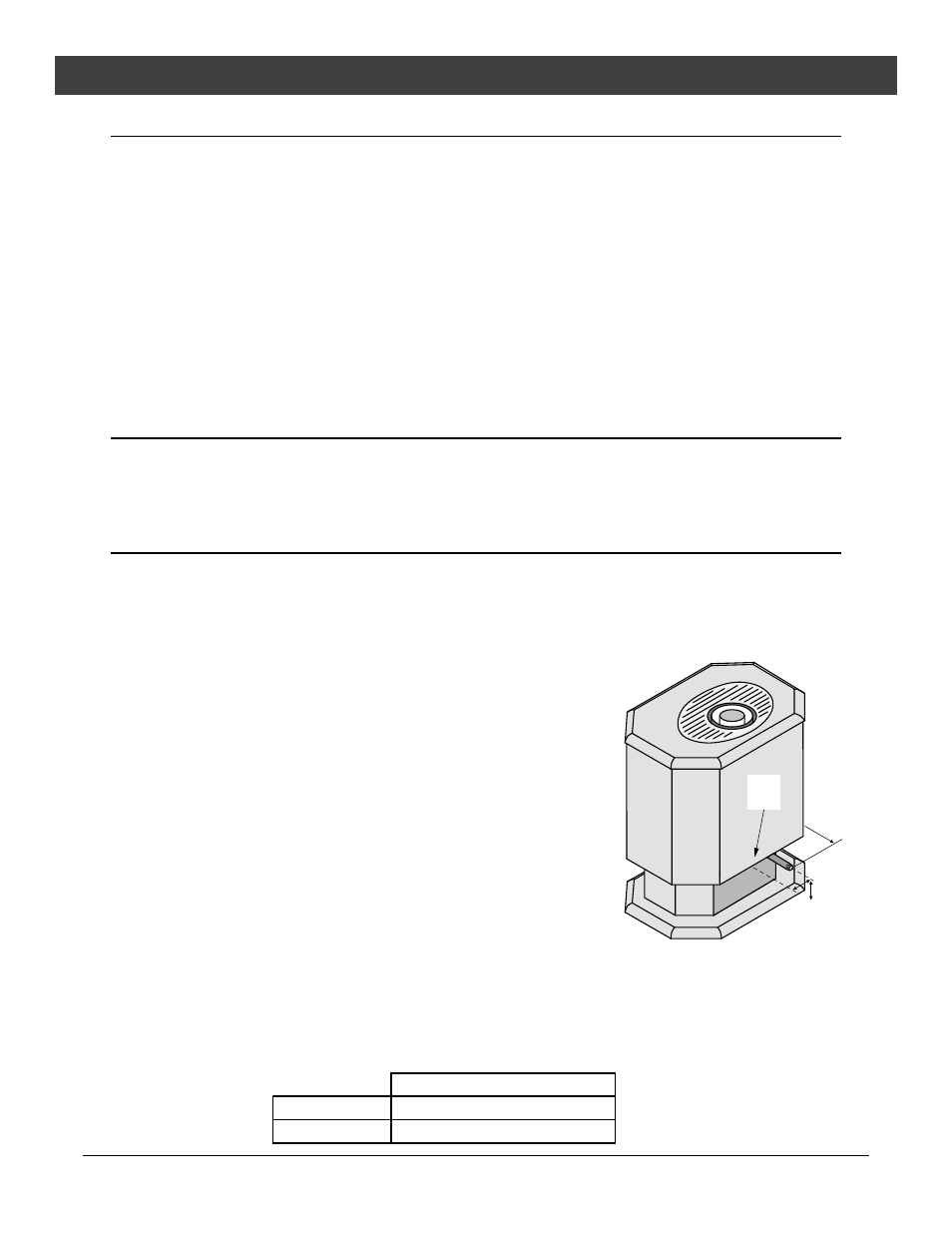Installation, Heater placement requirements, Floor protection requirements – Avalon Firestyles Salish EF-2000 to 2001 User Manual
Page 9: Gas line installation

Installation
(for qualified installers only)
7
Travis Industries
9 3 5 0 8 1 2 2
1 4 1 1 0 0
Heater Placement Requirements
•
Heater must be installed on a level surface capable of supporting the heater and vent
•
Due to the high temperature of the heater, it should be located out of traffic and away from
furniture and draperies. Heater must be placed so no combustibles are within, or can swing within
36” of the front of the heater (e.g. drapes, doors)
?
When placed in a location where the floor to ceiling height is under 7 feet, the installation is
considered an alcove and must meet the following requirements:
•
The alcove floor to ceiling height must be at least 60” tall
•
The alcove must not be more than 48” deep before the ceiling returns to 7’
•
The alcove must be at least 48” wide
•
The heater must not be placed so the vents below or above the door, along the sides of heater, or
along the back of the heater can become blocked.
•
This heater may be placed in a bedroom. Please be aware of the large amount of heat this
appliance produces when determining a location.
Floor Protection Requirements
•
When the stove is installed directly on carpeting, vinyl or other combustible material other than
wood flooring or a high pressure laminate wood floor, the stove must be installed on a metal or
wood protection panel extending the full width and depth of the heater (Minimum 27-3/8” wide by
20-3/8” deep).
Gas Line Installation
!
The gas line must be installed in accordance with all local codes, if any; if not, follow current ANSI
Z223.1 or NFPA 54 in the USA and the current CGA B149 in Canada.
!
The heater and gas control valve must be disconnected from the gas supply piping during any
pressure testing of that system at test pressures in excess of 1/2 psig (3.45 kPA). For pressures
under 1/2 psig (3.45 kPA), isolate the gas supply piping by closing the manual shutoff valve.
•
This heater is designed for natural gas but can be converted to
propane. Check the sticker on the top of the gas control valve
to make sure the correct fuel is used.
•
Leak test all gas line joints and the gas control valve prior to and
after starting the heater.
•
The gas inlet accepts a 3/8” F.P.T. Fitting
•
The location of the gas inlet is shown below
•
A manual shutoff valve is required for installation (it must be
located within 3’ of the heater). T-Handle gas cocks are required
in Massachusetts in compliance with code 248CMR.
•
Installation must be performed by a qualified installer, service
agency or the gas supplier (In Massachusetts a licensed
plumber/gasfitter).
Gas Inlet Pressure
18-3/8"
9-3/8”
Center
of
Heater
From
Front of
Heater
3”
•
With the heater off, the inlet pressure must meet the requirements listed in the table below
?
If the pressure is not sufficient, make sure the piping used is large enough and the total gas load
for the residence does not exceed the amount supplied.
?
The supply regulator (the regulator that attaches directly to the residence inlet or to the propane
tank) should supply gas at the suggested input pressure listed below. Contact the local gas
supplier if the regulator is at an improper pressure.
Standard Input Pressure
Natural Gas
7” W.C. (1.74 Kpa)
P r o p a n e
13” W.C. (3.23 Kpa)